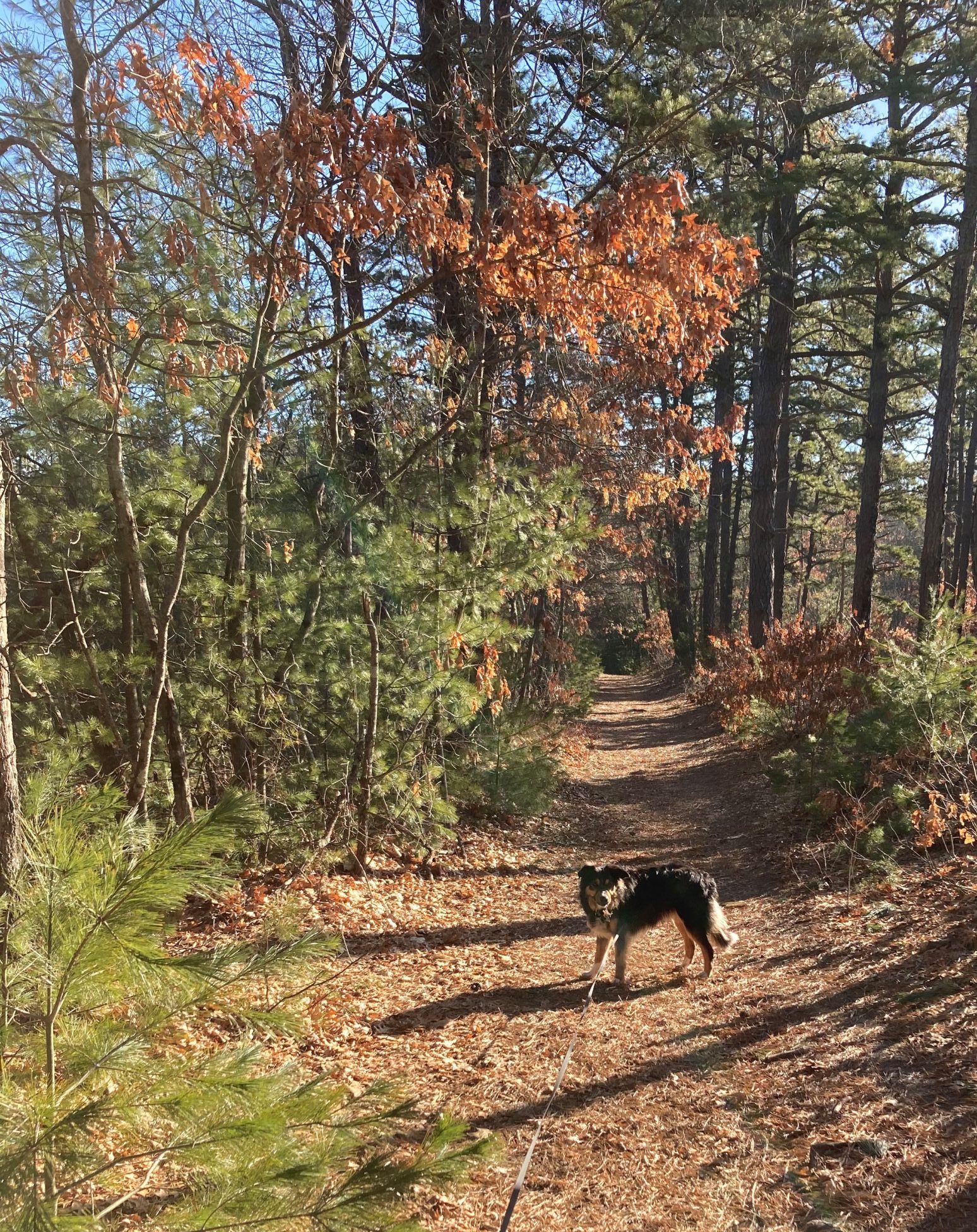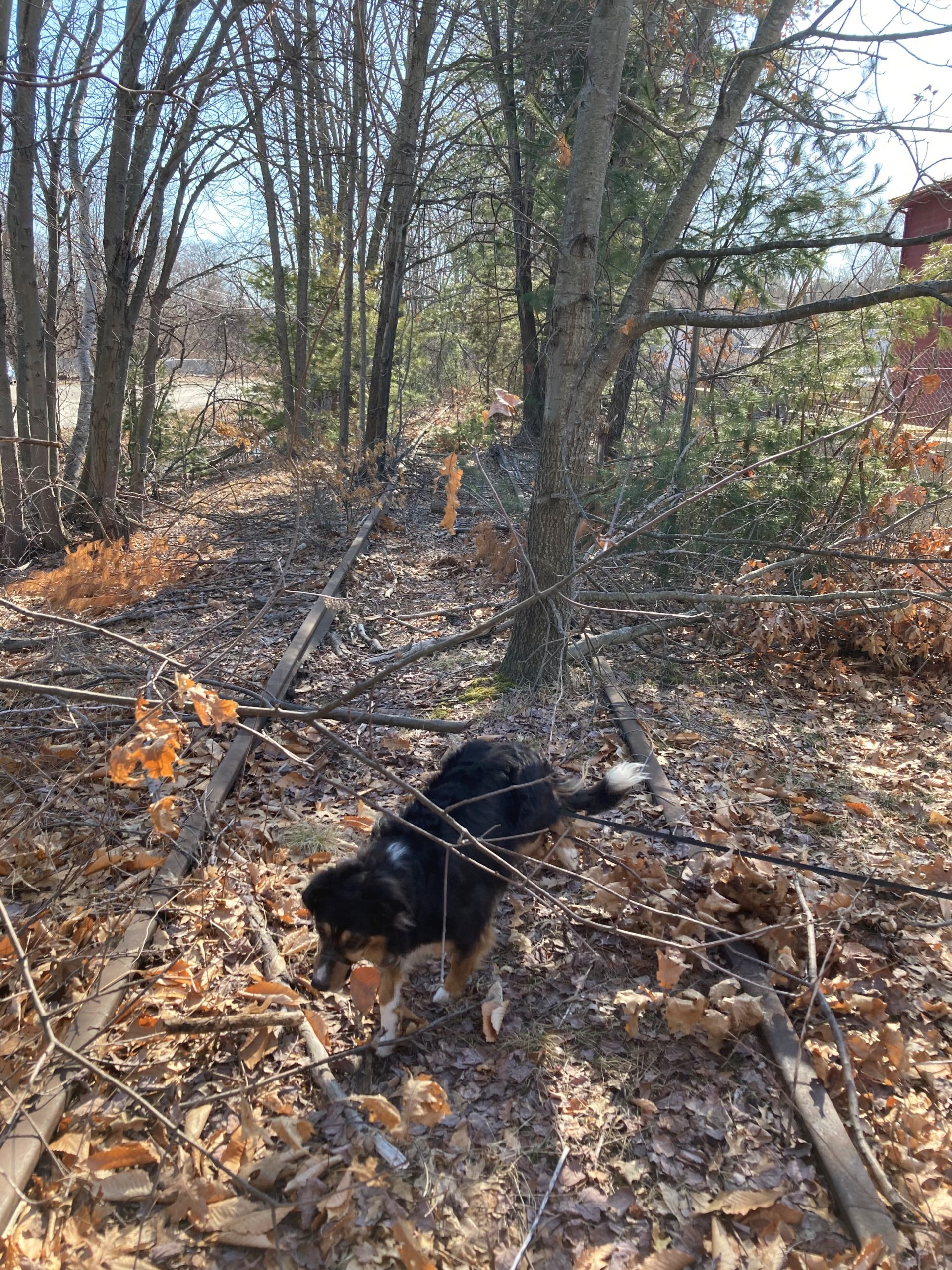A weed is no more than a flower in disguise.
-James Russell Lowell
There are times when Christine, Phyllis and I go to the web to find new trails to walk. For me, it’s an urge to explore my surroundings, to look for new places to experience the outdoors. Sometimes, these trails are easy to find and, sometimes, not so much. I stumbled across a reference to a trail that runs from Marlborough, starting not far from where I live, to Waltham, not far from where Phyllis lives. In the middle is the city of Wayland. The Wayland to Waltham part is paved and Phyllis knew it well. The Marlborough to Wayland part, neither of us knew about and we decided to find out what it was like. Christine was busy and couldn’t come with us, so it seemed like a good place to venture forth.
We started from the Marlborough end at a wide place in the road where we could park one of our cars. It served as the trailhead for the “Old Concord Road.” The path is packed earth and not wide enough, bounded by trees and undergrowth, for two horse-drawn buggies to pass. I couldn’t help but imagine that we were walking there in the 18th century, making our way to Concord and then, perhaps, on to Boston. The temperature was 22℉ when we started and I was glad for the gloves and parka I decided to wear. Phyllis, too, was dressed warmly, and Waldo enjoyed the cooler temperatures as he charged ahead, looking for and acquiring his ubiquitous sticks.
It didn’t take long and we came across parallel rusty iron rails in the dirt – the Central Massachusetts Branch, now defunct. The rails ran off into the woods, still separated by old rotting wooden ties, mostly buried in dirt and weeds, heading more or less East. It was rough, as far as most rail-trails go, but easily passable and we walked leisurely down the tracks toward Wayland.
After a mile or so, we came to Union Street in Sudbury and things changed dramatically. For a good two miles, the path was overgrown by bushes, trees and weeds, still skeletal from the winter. There were trees whose trunks had grown over the rails, incorporating them into their flesh. There were trees growing between the rails and the leafless stems of weeds, taller than we were, poking up into the air, grabbing for our clothes. Some of them had thorns that lashed out at us, forcing us to make blood sacrifices in order to pass (Waldo’s fur seemed to protect him from this). Every few yards, fallen trees blocked the rails completely, giving us no choice but to climb either over or under them. Waldo wrapped his leash around clumps of bushes and weeds and had to backtrack to get himself untethered. It was hard work and I could only imagine how much worse it would be when everything was completely leafed out. Once the temperature climbed to the mid-fifties, Phyllis and I were both sweating in our winter clothes and Waldo was panting. We doffed our coats, rolled them up, attached them to our packs and gave Waldo plenty of water. We were in our shirt sleeves as we bushwhacked our way along.
At one point, we saw it would be easier going off to our left, where there was manicured grass and a driveway. Leaving the railroad temporarily, just for a respite, we sauntered along on the lawn. We didn’t go very far, though, and the rails diverged from where we were and we had to fight the hibernating flora to get back to the “trail.” At another spot, I saw power lines converging on our intended path. I knew the going would be better under them so we took another detour. We followed the power lines until their path became coincident with the old railroad bed. Once they converged, the walking became trivial – someone had cut the weeds, grass and bushes down to the ground. We knew the worst was behind us and we high-fived. It wasn’t long after, around 6.5 miles from where we started, and we were on paved rail-trail for the rest of our trek to Waltham and the car we left there. The total trek was 12.5 miles long.
I suppose, if we had been on a deadline, this trip would have seemed a burden. But, as it was, we were exploring, nature placed obstacles in our path and we overcame them. There’s not just a sense of accomplishment in that, we also enjoyed being out in the wilderness, Mother Nature as she is, reclaiming what man has left behind.
And Waldo, he had lots and lots of sticks.



